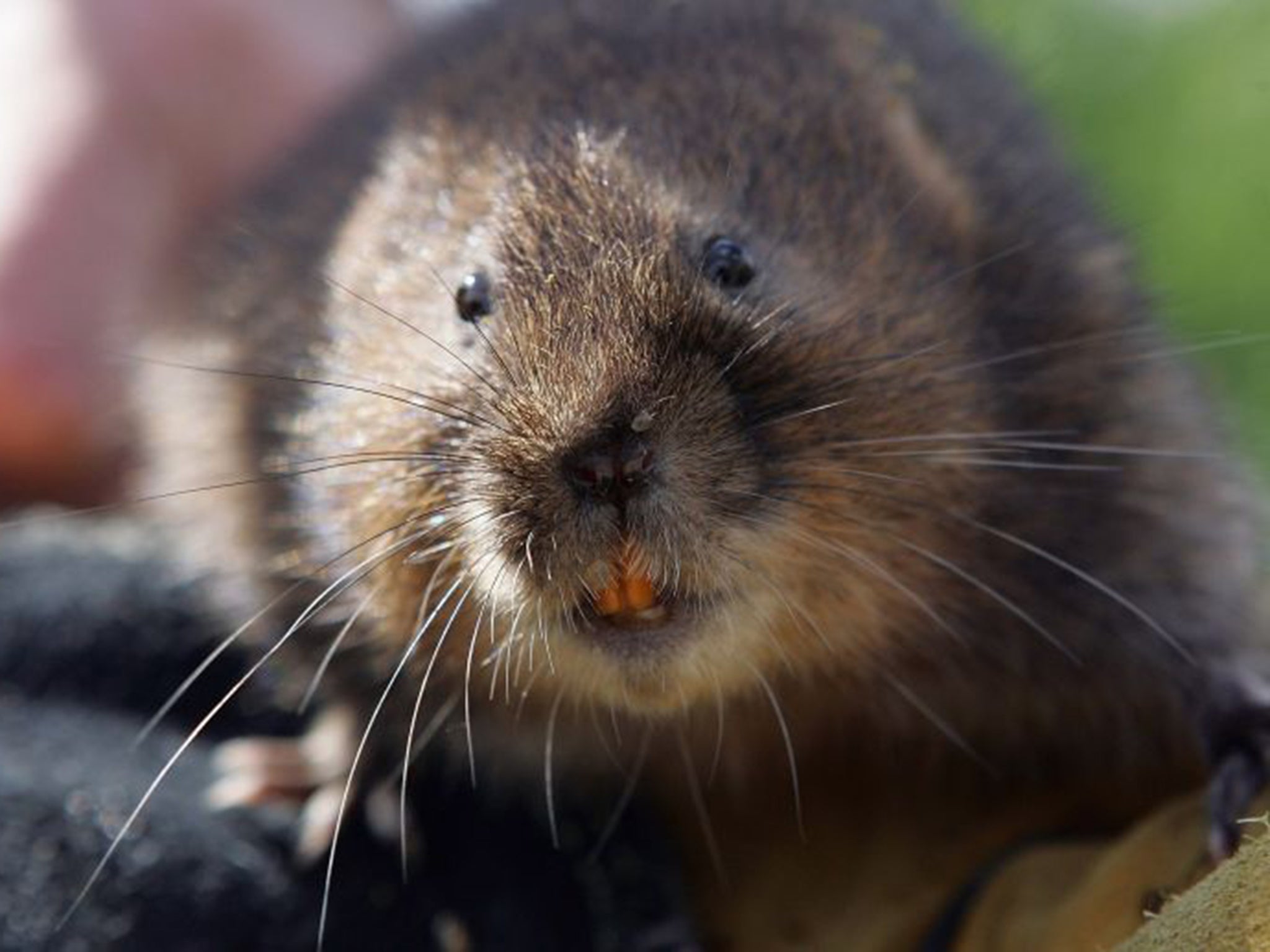Water voles feared to have disappeared from many parts of the British countryside
A century ago they numbered eight million, and until quite recently they were still a common sight on Britain’s waterways

Water voles – the native animals popularised by the debonair Ratty in Kenneth Grahame’s The Wind in the Willows – have fallen in such startling numbers that they are feared to have disappeared from many parts of the British countryside.
A century ago they numbered eight million, and until quite recently they were still a common sight on Britain’s waterways. Records from 1990 show a population of just over seven million across England, Scotland and Wales, but by 1998 that number had crashed to less than a million. Far fewer are expected to exist today, and the most recent National UK Water Vole Database and Mapping Project, in 2013, revealed that the number of areas where they had been seen had fallen by 22 per cent in five years.
The decline is mainly due to predation and habitat loss. The American mink, the water vole’s main predator, was first imported into the UK in the 1920s for the fur trade; but after a steady stream of escapes from farms they have driven water voles away from many of our rivers.
Their size and brown colour means water voles are often confused with rats – hence the name of Grahame’s character – but their blunt nose, furry tail and small ears set them apart. They are already thought to have gone from Cornwall, and last week the Surrey Wildlife Trust declared the water vole “functionally extinct” in the county. It has not been seen there since 2008 – the year it was granted full legal protection under the Wildlife and Countryside Act.
Last week Christine Gregory, a Derbyshire naturalist, published The Water Vole, highlighting the creature’s plight. The book, with a foreword by the TV presenter Chris Packham, offers a glimmer of hope by documenting the efforts being made to re-establish populations across the country. These include restoring degraded rivers, managing bankside vegetation and monitoring pollution levels in waterways.
Join our commenting forum
Join thought-provoking conversations, follow other Independent readers and see their replies
Comments